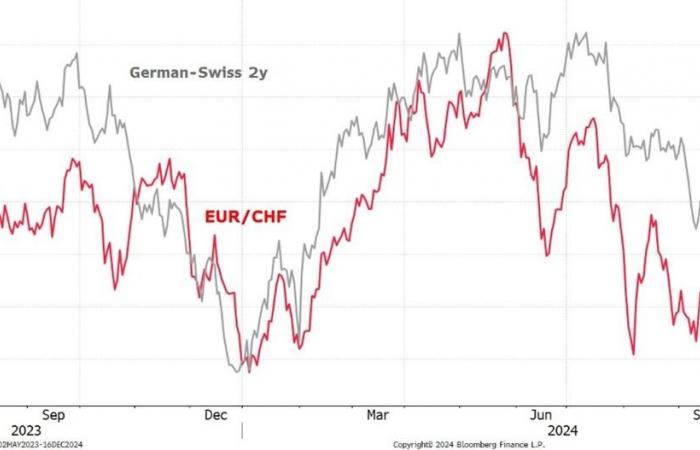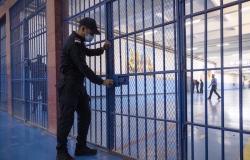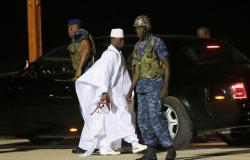Once again, the Swiss National Bank surprised by reducing its rates by 50 basis points to 0.5%. This is the fourth consecutive decline.
The previous three were 25 bps. Remember that it only meets four times a year, in March, June, September and December. This decision is justified by a further decline in inflationary pressures. While inflation was 1.1% in August, it fell to 0.7% in November, driven by a drop in prices of goods and services. Inflation remains within the price stability range according to the SNB’s criteria, but below its most recent forecasts. The new forecasts have also been revised downwards to 0.3% for 2025, compared to 0.6% in September. Uncertainty remains very high. There is a risk that a strong franc will push inflation into negative territory.
While the SNB is willing to tolerate temporarily negative inflation, it does not want it to take root
The SNB wants the CHF to be weaker, but this depends on external factors. With the ECB still having to reduce its rates by 125 bps, the SNB could theoretically be forced to return to negative territory to ease the pressure on the CHF. It will be difficult to reduce rates without going back into negative territory, because the ECB has more room for maneuver. Rate cuts by the ECB not followed by the SNB could lead to a rise in the Swiss franc. There is also a risk of being labeled a monetary manipulator by the US administration. This would reduce the SNB’s willingness to intervene in the foreign exchange market.
We remain skeptical that the SNB is depriving itself of ammunition to face possible future negative shocks. She anticipated the drop in interest rates. Unlike the forecasts for 2025, the SNB’s inflation forecasts for 2026 and 2027 have been revised slightly upwards, to 0.8% and 0.7% respectively. The SNB will continue to lower its rates in 2025, but will avoid going into negative territory. However, the probability has increased.
The market will question the BNS’s ability to intervene massively with the new Trump administration. A vigorous intervention in the foreign exchange market would tick the 3rd of the 3 criteria for the Treasury to qualify Switzerland as a monetary manipulator – as in 2020.
SNB Chairman Schlegel said the likelihood of negative rates was low. But it increased for 2025. This is not yet its central scenarioIn a world of lower rates, the CHF generally outperforms. The same applies in the event of increased volatility and uncertainties, which are not lacking in the EU
Business







